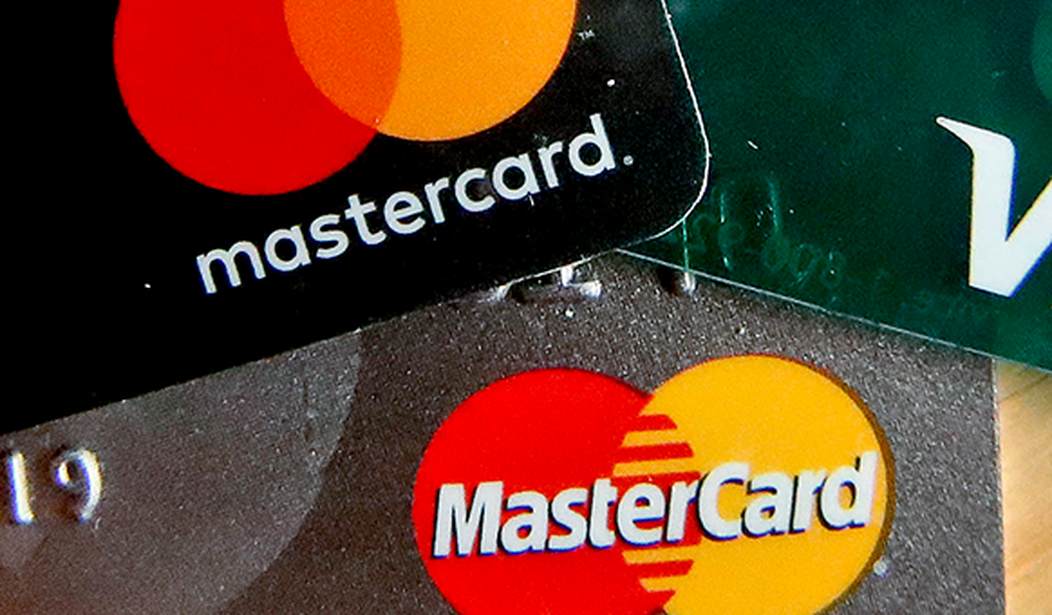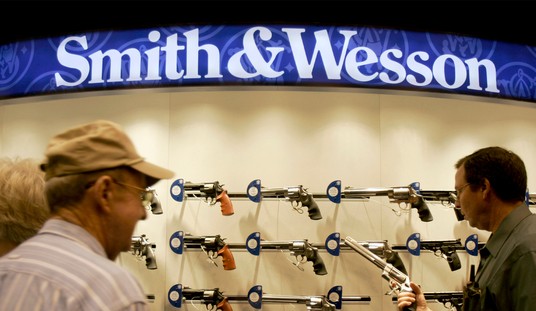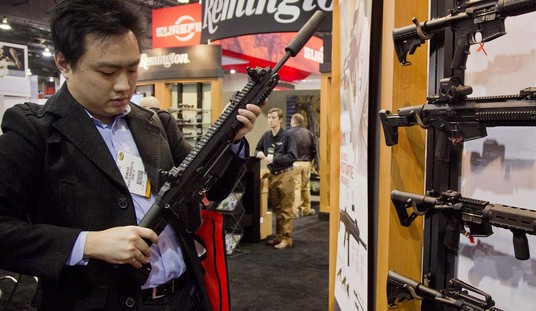I still think this is going to end up with Republican-run states telling credit card companies they’ll be fined for adopting the merchant category codes for gun stores and Democrat-dominated states imposing penalties on the same companies if they don’t start using the codes, but we’re not quite there yet. In the interim, more than a dozen blue-state attorneys general have fired off a strongly-worded letter of complaint to Visa, Mastercard, Discover, and American Express officials over their decision to hit the pause button on implementing the MCCs that promises vague and unspecified “further actions” if the companies don’t comply with their demands.
In the letter, the 14 Democratic AGs try their best to justify the use of the category codes and to shame the companies for not implementing them, claiming that the decision is going to lead to blood on their hands.
“We see no valid reason why these companies, who process millions of transactions in firearms, ammunitions, gun kits, and more, would renege on their pledge to take simple, commonsense steps to help flag potential gun traffickers and mass shooters,” said Attorney General Platkin. “Applying a merchant code is hardly an invitation to violate the Second Amendment, but failing to apply it is an invitation to criminals to purchase firearm products with impunity and commit violent acts in our communities. We implore Mastercard, Visa, Discover, and American Express to stand up and make good on their pledge to help protect against gun violence. Their actions can help prevent innocent school children and others from dying needlessly at the hands of a gunman.”
In the letter, the Attorneys General remind the credit card companies that the newly created code for gun stores is hardly an extraordinary development. They’re already using them to categorize basic transactions for everyday items like flowers and groceries, and already have hundreds of retailer codes for everything from stamp shops and wig stores to car rental agencies and various government services.
The new code simply creates a unique merchant category for gun stores, which previously were categorized as “sporting goods stores” or “general merchandise.”
Right, but no one is calling on the credit card companies to start monitoring and reporting all “suspicious” transactions at grocery stores or flower shops to the federal government, as is the case with the MCCs for gun stores. And while Platkin claims that without these codes criminals can buy guns with “impunity,” he conveniently ignores the fact that all commercial firearms transactions already go through a background check.
I’ve yet to see a single gun control supporter who’s been able to offer up a specific definition of what would constitute a suspicious purchase that companies should flag, including these attorneys general. In fact, New Jersey Acting AG Matthew Platkin’s press release accidentally makes the point that many gun owners and even credit card company officials have been making; these reporting requirements are really designed to detect and deter financial crimes, not acts of violence.
Enabling financial institutions to detect and flag threatening patterns and potential criminal activity for law enforcement is nothing new, as they’ve been doing it for decades, the letter points out.
For instance, federal law requires Suspicious Activity Reports when banks “detect a known or suspected violation of Federal law or a suspicious transaction related to a money laundering activity or a violation of the Bank Secrecy Act,” the letter states. And state and federal law enforcement agencies often request evidence relating to firearms or other investigations. But the ability of financial institutions or law enforcement to take steps against criminal gun purchases is hampered by the lack of a dedicated code for firearm and ammunition retailers, the letter asserts.
Which is utter nonsense. As Platkin pointed out earlier in his own press release, the category codes don’t allow authorities to identify what was purchased at a gun store, only that a purchase was made. Supporters of the codes claim that companies would be able to identify suspicious patterns in purchases, but again, are mum about what those patterns look like in practice. If you buy a gun on Friday and go back for more ammo on Saturday, is that a red flag? What about a competitive shooter or a gun owner who spies a good deal on ammunition and purchases several thousand rounds?
Merchant category codes were never intended to be a tool to prevent violent crime, and they would be of little use in detecting potential mass shooters, despite the claims by Platkin and his cohorts. And though the anti-gun AGs are threatening unspecific “further action” if the companies don’t bend the knee to their demands, Platkin’s own press release reveals there’s not much they can do about it.
But in an abrupt about-face last week, all four companies announced they were putting the brakes on implementing the code, citing legislative bills in several states seeking to bar or limit the use of the voluntary code as a supposed incursion on Second Amendment rights.
That’s right. Use of the codes aren’t mandated by law, so the companies are free to not adopt them if they choose, at least for now. The “further action” is more likely to come from blue-state lawmakers and bills that fine or prohibit credit card companies that don’t use the codes in their states rather than anti-2A AGs like Platkin, but either way the gun control lobby and their elected lackeys aren’t giving up on forcing credit card companies to adopt and implement the codes… or else.









